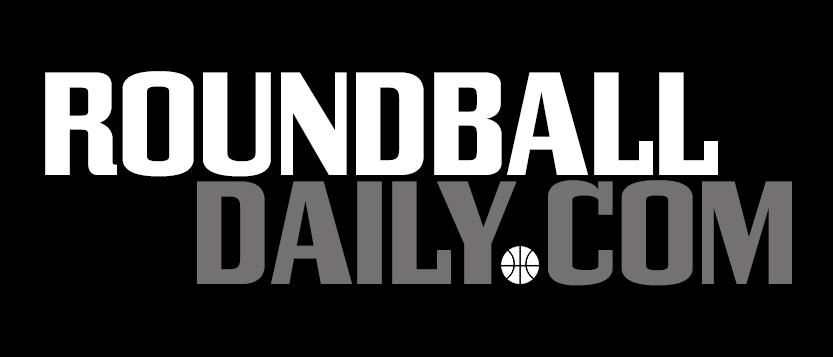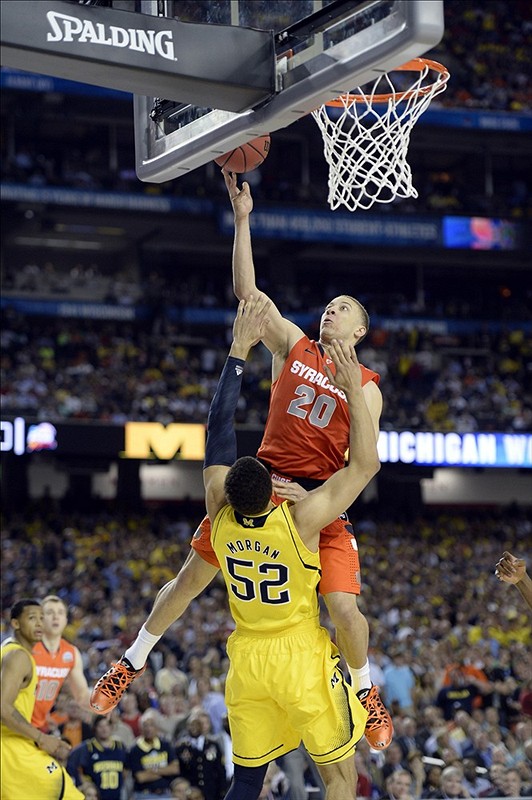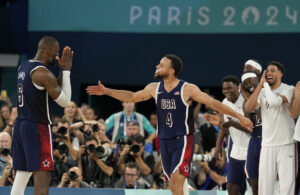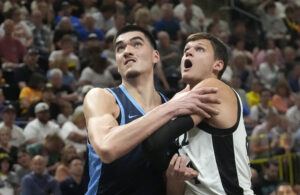- Attacking style not the only reason some Tottenham fans will back Ange Postecoglou until the bitter endPosted 5 months ago
- Paris Olympics takeaways: What did Team USA’s crunch-time lineup say about NBA’s hierarchy?Posted 10 months ago
- Zach Edey posted an easy double-double in Summer League debut. Here’s why he’ll succeed in NBAPosted 12 months ago
- What will we most remember these champion Boston Celtics for?Posted 12 months ago
- After long, seven-year road filled with excruciating losses, Celtics’ coast to NBA title felt ‘surreal’Posted 1 year ago
- South Florida men’s basketball is on an unbelievable heater– but also still on the bubblePosted 1 year ago
- Kobe Bufkin is balling out for Atlanta Hawks’ G League team. When will he be called up to NBA?Posted 1 year ago
- Former Knicks guards Immanuel Quickley, RJ Barrett may yet prove Raptors won the OG Anunoby tradePosted 1 year ago
- Rebounding savant Oscar Tshiebwe finally gets NBA chance he’s deserved for yearsPosted 2 years ago
- Is Tyrese Maxey vs. Tyrese Haliburton the next great NBA guard rivalry?Posted 2 years ago
NCAA changes block-charge rule for 2014 season
- Updated: May 11, 2013
If you watched the NCAA Tournament this past March, you noticed a whole lot of this:
A referee standing with one hand behind his head, another pointing forward and taking the play the other way. It was annoying, disruptive and downright un-American.
The charge was becoming an epidemic in college basketball, but Wednesday the rules committee took steps to make it a a little less common.
According to a report from ESPN’s Andy Katz, officials will now be advised to call a block instead of a charge when a defensive player moves into the offensive player’s space once he starts his upward motion with the ball.
The new wording of the rule likely would have swung a lot of block-charge calls the other way, perhaps including the charge call on Syracuse’s Brandon Triche late in the National Semifinals against Michigan. That call is now infamous in upstate New York.
In the past, officials had to judge whether or not the defender was in front of the offensive player with his two feet down and facing the offensive player. They also had to determine if the offensive player had left the court before the defensive player was set.
Now, defensive players wont’ able to slide into place and draw charges as easily.
“We think this will allow the official to make the call correctly and perhaps increase the scoring,” Big East officiating coordinator Art Hyland told ESPN.com. “If you call a charge then the ball is taken away. If it’s a block then the player gets to the line or could convert a three-point play. If that happens two or three times a game that’s seven or eight points more in a game.”




